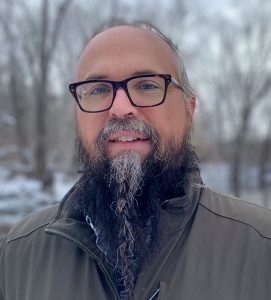Indigenous peoples are among the populations in the U.S. who are increasingly calling for equity and justice in the energy transition to renewable energy. Major policy initiatives, proposed for legislation and adopted by the White House, are seeking to mobilize research to support Indigenous energy goals. The presentation covers research and best practices relating to ethics, justice, and partnership for the collaborations that are needed to ensure Indigenous peoples are among the leaders of the energy transition.

Indigenous Peoples and Energy Justice
Webcast Video
Guests

Kyle Whyte
University of Michigan
George Willis Pack Professor of Environment and Sustainability
Dr. Whyte is George Willis Pack Professor of Environment and Sustainability at the University of Michigan, teaching in the environmental justice specialization. His research addresses environmental justice, focusing on moral and political issues concerning climate policy and Indigenous peoples, the ethics of cooperative relationships between Indigenous peoples and science organizations, and problems of Indigenous justice in public and academic discussions of food sovereignty, environmental justice, and the anthropocene. He is an enrolled member of the Citizen Potawatomi Nation.
Kyle currently serves on the White House Environmental Justice Advisory Council, the Management Committee of the Michigan Environmental Justice Coalition, and the Board of Directors of the Pesticide Action Network North America. He has served as an author for the U.S. Global Change Research Program, including authorship on the 4th National Climate Assessment. He is a former member of the Advisory Committee on Climate Change and Natural Resource Science in the U.S. Department of Interior and of two environmental justice work groups convened by past state governors of Michigan.
Kyle currently serves on the White House Environmental Justice Advisory Council, the Management Committee of the Michigan Environmental Justice Coalition, and the Board of Directors of the Pesticide Action Network North America. He has served as an author for the U.S. Global Change Research Program, including authorship on the 4th National Climate Assessment. He is a former member of the Advisory Committee on Climate Change and Natural Resource Science in the U.S. Department of Interior and of two environmental justice work groups convened by past state governors of Michigan.